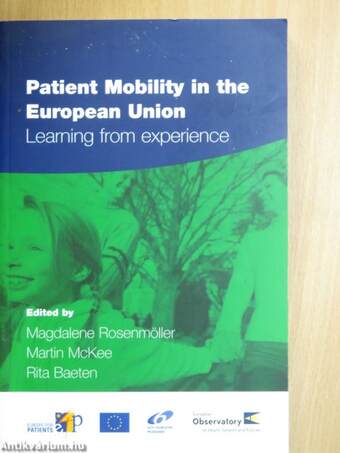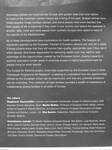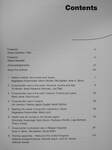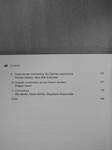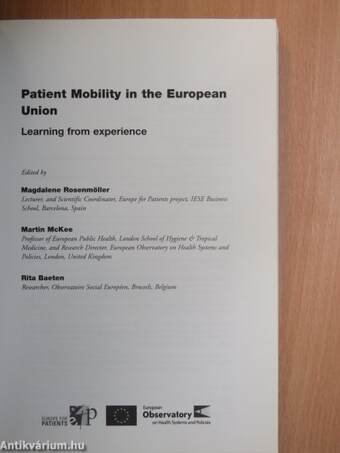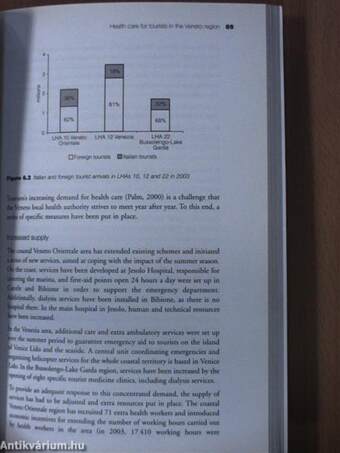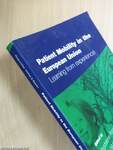1.067.339
kiadvánnyal nyújtjuk Magyarország legnagyobb antikvár könyv-kínálatát

VISSZA
A TETEJÉRE
JAVASLATOKÉszre-
vételek
Patient Mobility in the European Union
Learning from experience
| Kiadó: | World Health Organization |
|---|---|
| Kiadás helye: | |
| Kiadás éve: | |
| Kötés típusa: | Ragasztott papírkötés |
| Oldalszám: | 194 oldal |
| Sorozatcím: | |
| Kötetszám: | |
| Nyelv: | Angol |
| Méret: | 24 cm x 16 cm |
| ISBN: | 92-890-2287-6 |
| Megjegyzés: | Néhány fekete-fehér ábrával, térképpel. |
naponta értesítjük a beérkező friss
kiadványokról
naponta értesítjük a beérkező friss
kiadványokról
Fülszöveg
Nowadays people can travel across Europe with greater ease than ever before. In much of the Continent, bordér checks are a thing of the past. Budget airlines have made possible cheap holidays abroad, and somé people have even decided that their quality of life is improved if they work in one country and spend the weekend in another. Alsó, more and more people from northern Europe have opted to retire in the warmth of the Mediterranean.
Ali of these developments have implications for health systems. The freedom of movement granted by the European Treaties to Europe's citizens can only be a reality if those citizens know that they will receive high-quality, appropriate care if they fali ill when abroad. And those responsible for delivering health care may want to take advantage of the opportunities created by the European Union, sharing capacity in sparsely populated bordér areas or ensuring access to highly-specialized care for people living on small islands.
The Europe for... Tovább
Fülszöveg
Nowadays people can travel across Europe with greater ease than ever before. In much of the Continent, bordér checks are a thing of the past. Budget airlines have made possible cheap holidays abroad, and somé people have even decided that their quality of life is improved if they work in one country and spend the weekend in another. Alsó, more and more people from northern Europe have opted to retire in the warmth of the Mediterranean.
Ali of these developments have implications for health systems. The freedom of movement granted by the European Treaties to Europe's citizens can only be a reality if those citizens know that they will receive high-quality, appropriate care if they fali ill when abroad. And those responsible for delivering health care may want to take advantage of the opportunities created by the European Union, sharing capacity in sparsely populated bordér areas or ensuring access to highly-specialized care for people living on small islands.
The Europe for Patients project, financially supported by the European Union's Sixth Framework Programme for Research, is seeking to understand how the opportunities offered by the European Union can be maximized, and how any potential problems can be overcome. This collection of case studies provides a wealth of experience of collaborating across borders in all parts of Europe.
The editors
Magdalene Rosenmöller, Lecturer, and Scientific Coordinator, Europe for Patients project, IESE Business School, Barcelona, Spain. Martin McKee, Professor of European Public Health, London School of Hygiene & Tropical'Medicine, and Research Director, European Observatory on Health Systems and Policies, London, UK. Rita Baeten, Researcher, Observatoire Social Européen, Brussels, Belgium.
Contributors include: Tit Albreht, Natasha Azzopardi Muscat, Rita Baeten, Luigi Bertinato, Nicole Boffin, John M. Cachia, Kenneth Grech, Irene A. Glinos, Philippe Harant, Jim Jamison, Maris Jesse, Ruta Kruuda, Helena Legido-Quigley, Maria Lluch, Martin McKee, Thomas Nebling, Rade Pribakovic Brinovec, Francesco Ronfini, Magdalene Rosenmöller, Simonetta Scaramagli, Hans-Willi Schemken, Jurij Stalc, Franco Toniolo, Deborah M. Xuereb, Dario Zanon. Vissza
Témakörök
- Szociológia > Módszertan > Esettanulmányok
- Idegennyelv > Idegennyelvű könyvek > Angol > Orvostudomány
- Idegennyelv > Idegennyelvű könyvek > Angol > Szociológia > Módszertan > Esettanulmányok
- Orvostudomány > Általános orvosi, egyéb > Egészségügy > Betegellátás
- Orvostudomány > Általános orvosi, egyéb > Idegennyelvű
- Orvostudomány > Orvosi idegennyelvű könyvek > Általános orvosi
- Szociológia > Szociálpolitika > Egyéb
- Idegennyelv > Idegennyelvű könyvek > Angol > Szociológia > Szociálpolitika > Egyéb
- Orvostudomány > Általános orvosi, egyéb > Egészségügy



